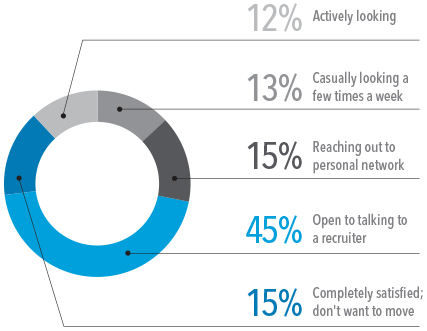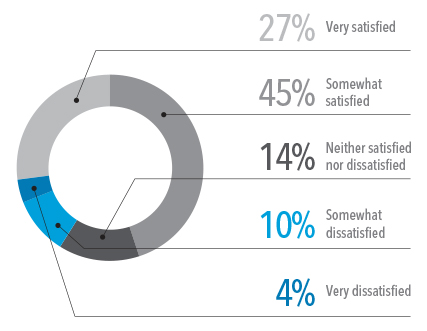Take the pulse of professionals worldwide when it comes to their current jobs and what would convince them to accept a new position. This in-depth Talent Trends report is based on responses from over 18,000 fully-employed professionals in 26 countries*.
In Talent Trends 2014, you will find:
- Updated global breakdown of the percentage of active and passive candidates
- Worldwide job satisfaction levels among professionals
- Top motivators for passive and active candidates to accept a new job
- Candidate opinions on the importance of talent brand
- Most important things professionals do to stay on top of their career
Here is a preview of a few of the fascinating questions professionals answered:

